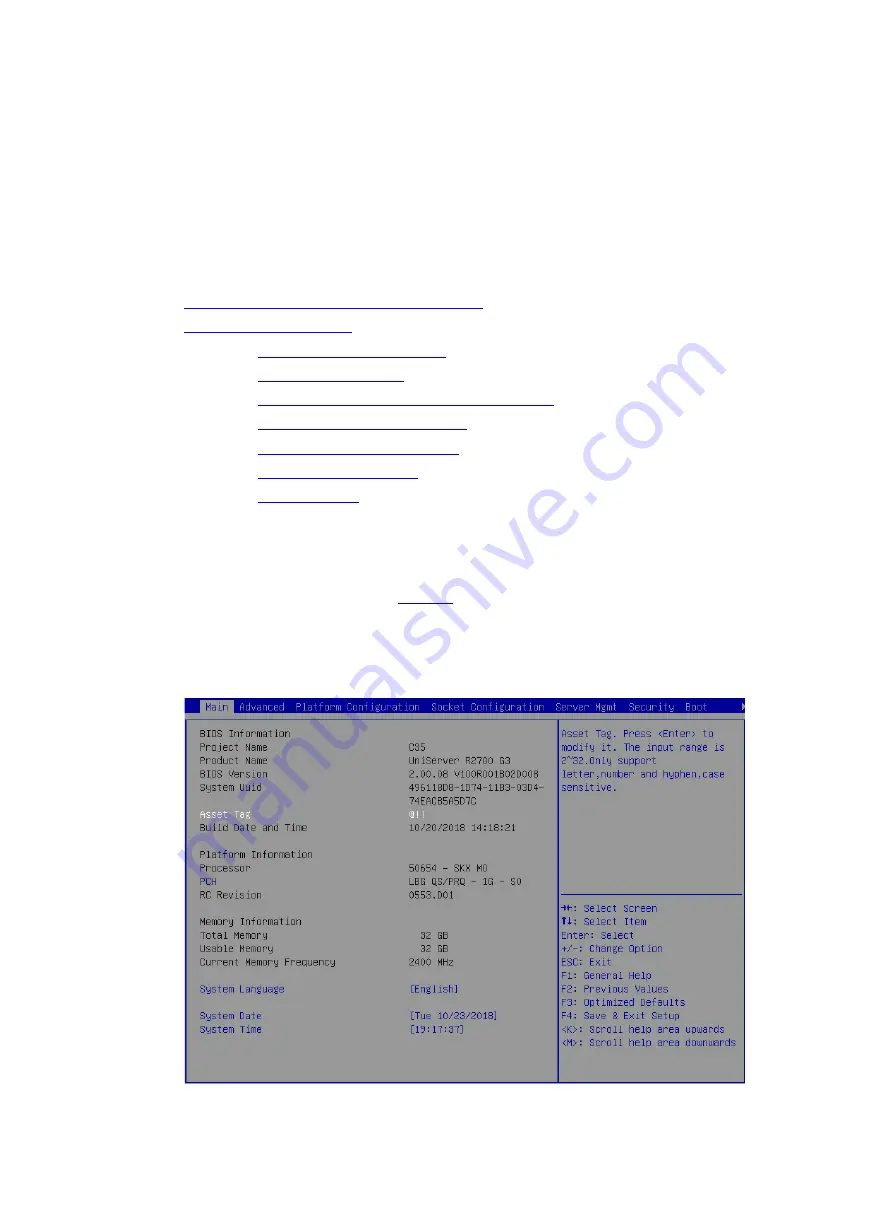
2
Configuring RAID arrays in UEFI mode
This section describes how to configure RAID arrays through a storage controller in UEFI mode. For
more information about how to enter the BIOS and set the boot mode to UEFI, see the BIOS user
guide for the server.
RAID arrays configuration tasks at a glance
To configure RAID arrays in UEFI mode, perform the following tasks:
•
Accessing the controller configuration screen
•
•
•
•
Clearing RAID array information on the drive
•
View basic controller properties
•
Changing controller properties
•
•
Accessing the controller configuration screen
1.
Access the BIOS. Press
Delete
,
Esc
, or
F2
as prompted during server POST to open the
BIOS setup screen as shown in
. For some servers, the
Front Page
screen opens,
and you must select
Device Management
before proceeding to the next step.
For how to navigate screens and modify settings, see the operation instructions at the lower
right corner.
Figure 1 BIOS setup screen
Summary of Contents for UniServer E3200 G3
Page 35: ...19 Figure 29 Selecting the RAID volume to be deleted...
Page 116: ...56 Figure 96 Controller Configuration screen...
Page 220: ...61 Figure 109 Selecting Main Menu 2 Select Controller Management and press Enter...
Page 243: ...84 Figure 153 Confirming the operation...
Page 293: ...50 Figure 89 Clearing completion...
Page 382: ...21 Figure 27 Storage controller information...
Page 389: ...7 Figure 8 Identifying a storage controller 2...
















































